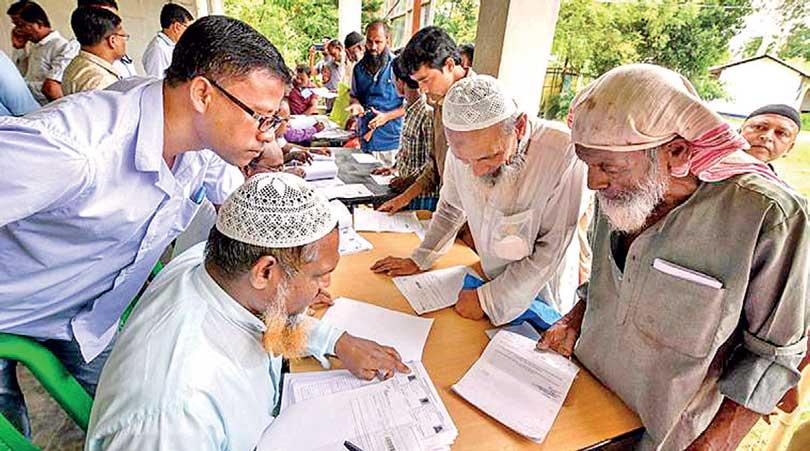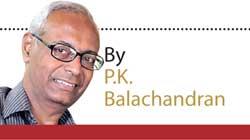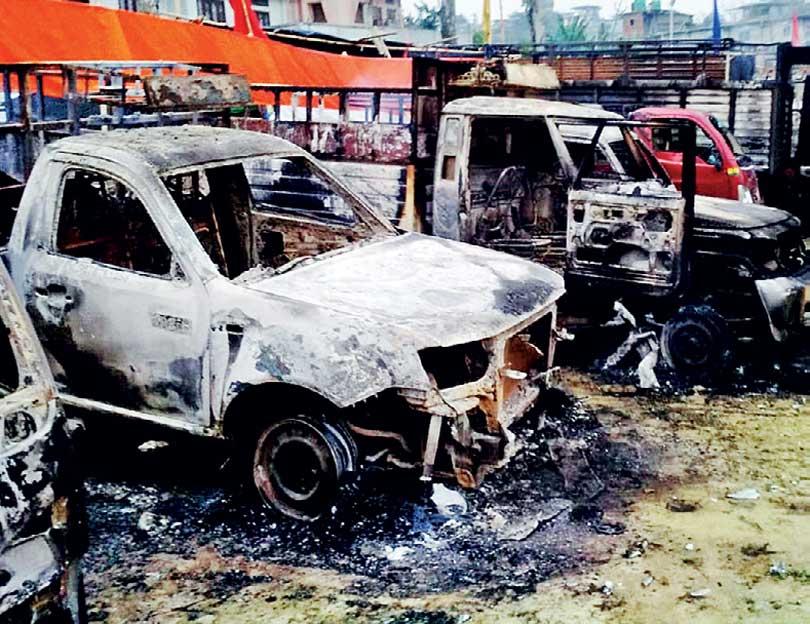Reply To:
Name - Reply Comment
Last Updated : 2024-05-09 21:25:00

Assam citizenship enumeration

For the past few decades, India has been witnessing internal migration from State to State and also unauthorised immigration from Bangladesh, both movements being driven by economic factors.
There is also a tendency to bring about political and administrative centralisation which is part of the Indian ruling classes’ agenda to create and consolidate a monolithic and an almost mono-cultural “nation state”, where all are treated equally with no class of people claiming special treatment or privileges.
But this has not gone down well in many parts of India.
A number of States (provinces) in India feel an urgent need to preserve the existing demographic pattern and protect themselves from being overwhelmed by “outsiders”.
In Assam and other North-Eastern States, there has been a long standing movement to protect themselves from being swamped by Bangladeshi Muslim economic migrants. In tribal Arunachal Pradesh, the movement is against extending privileges to non-tribal migrants from other parts of India. In Kashmir, there is a movement to stop the annulment of Art 35A and Art 370 of the Indian constitution which gives the Kashmir Government the right to define Permanent Residency and announce special privileges to Permanent Residents.
Arunachal Pradesh
 The on-going violence in Itanagar, the capital of Arunachal Pradesh, was triggered by the government’s move to provide Permanent Resident Certificates (PRC) to six non-tribal communities living in the State for decades.
The on-going violence in Itanagar, the capital of Arunachal Pradesh, was triggered by the government’s move to provide Permanent Resident Certificates (PRC) to six non-tribal communities living in the State for decades.
Last week, an irate mob of locals burnt down Deputy Chief Minister Chowna Mein’s multi-storied private residence. Manipur
In Manipur, Chief Minister N Biren Singh stated that his Government will seek the Indian President’s assent to the Manipur People’s (Protection) Bill, 2018, before passing the Central Government’s Citizenship (Amendment) Bill, 2016.
The Manipur People’s (Protection) Bill, passed unanimously by the Manipur Assembly in July 2018, aims to grant the status of “natives” to Meiteis, Pangal Muslims, scheduled tribes and others who moved to the state before 1951. The rest are to be categorized as “non-Manipuris”, who will have to register themselves within one month of the ratification of the law.
In Kashmir, there has been a long drawn out struggle to preserve the special privileges granted to India’s only Muslim-majority State to enable it to preserve its identity. Art 35 (A) and Art 370 of the Indian constitution are meant to preserve this identity.
But, over the years, Art 370 has been watered down and eroded by a series of executive actions by the Central Government since Jawaharlal Nehru’s time. It is no secret that the ruling Bharatiya Janata Party (BJP) wants to abolish it altogether and integrate Kashmir with India completely.
The Modi Government’s recent moves to scrap Art 35A made former Chief Minister Mehbooba Mufti warn: “Those frothing at the mouth & calling for its removal shouldn’t blame Kashmiris for the developments that will follow such a hare-brained decision.”
Art 35A provides that a person will be treated as a “Permanent Resident of Jammu and Kashmir” only in accordance with the law which was already in force in the State before May 14, 1954.
Art 35A further provides that the Permanent Residents will continue to enjoy Special Rights and Privileges in the matter of (1) Employment under the State (2) Acquisition of immovable property in the State (3) Settlement in the State (4) Scholarship and aid as the State Government may provide.
Additionally, any law which gives these Special Rights and Privileges to the Permanent Residents of the State cannot be declared null and void by any Court on any ground.
However, Art 35A has been challenged in the Indian Supreme Court on the grounds that it violates the fundamental right of Equality before Law. It is also pointed out that Art 35A was put into the constitution without going through parliament. It came under the rubric of Art 370 which broadly defined Kashmir’s constitutional relations with India.
Historian Srinath Raghavan of the Center for Policy Research gives the background thus: The Instrument of Accession signed by the Maharaja of Kashmir in October 1947 after the British left, specified only three subjects for accession: Foreign Affairs, Defence and Communications. In July 1949, Kashmiri leader Sheikh Abdullah and three colleagues joined the Indian Constituent Assembly and negotiated over the next five months the future relationship of Kashmir with India.
This led to the adoption of Article 370, which restricted the Union’s legislative power over Kashmir to the three subjects in the Instrument of Accession” was necessary.
Further, this concurrence would have to be upheld by the constituent assembly of Kashmir, so that the provisions would be reflected in the State’s constitution.
In another set of negotiations in 1952 between New Delhi and Srinagar—known as the Delhi Agreement—several other provisions of the Indian Constitution were extended to Jammu and Kashmir via a Presidential Order in 1954. Among other things, this order empowered the state legislature to regulate the rights of permanent residents.
The Presidential Order of 1954 cannot be questioned without questioning the validity of other provisions of the Indian constitution it extended to Jammu and Kashmir. What’s more, such orders have periodically been used to amend the state’s constitution, Raghavan adds.
If Art 35A is annulled, all the Presidential Orders issued since 1950 would have to be annulled and Kashmir will have all powers except those relating to Defence, Communication and Foreign Affairs.
Assam
Political realities have temporarily halted the Modi Government’s brazen attempt to communalize Indian citizenship requirements to the advantage of the majority Hindus and to the detriment of the minority Muslims.
The Citizenship (Amendment) Bill 2016 gives the Central government power to give citizenship to non-Muslims from Islamic countries in the neighborhood. The requirement of continuous residence in India prior to applying for citizenship has been brought down to six years. Further, no documents need be submitted in support of the claim to citizenship.
But the bill clashed with the Assam Accord of 1985 according to which nobody, irrespective of religious affiliation, who had entered the State from abroad after March 24, 1971 would be given citizenship.
The Central Government has been preparing a National Register of Citizens (NRC) with March 34, 1971 as the cut off date. The Citizenship Act of 2016 with a totally different set of stipulations, would make a mockery of the Assam Accord and the NRC.
The 2016 act is now shelved temporarily because the Modi government felt that it did not have the required numbers in the Upper House to pass it.

Violent agitation in Itanagar, Aunachal Pradesh

Add comment
Comments will be edited (grammar, spelling and slang) and authorized at the discretion of Daily Mirror online. The website also has the right not to publish selected comments.
Reply To:
Name - Reply Comment
US authorities are currently reviewing the manifest of every cargo aboard MV
On March 26, a couple arriving from Thailand was arrested with 88 live animal
According to villagers from Naula-Moragolla out of 105 families 80 can afford
Is the situation in Sri Lanka so grim that locals harbour hope that they coul